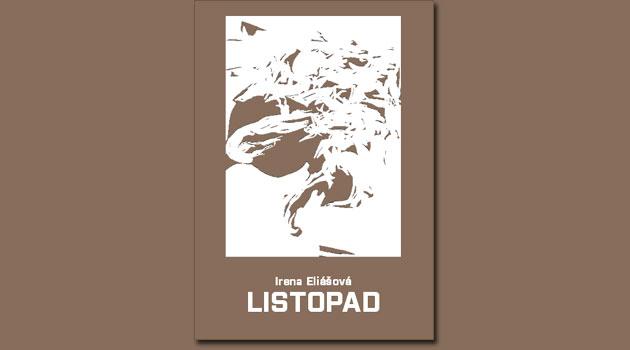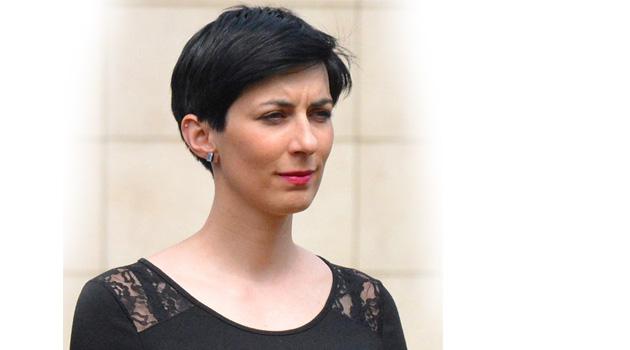International Romani Language Day celebrated with readings in six Czech cities

International Romani Language Day, which falls annually on 5 November, was celebrated throughout the Czech Republic this year by Romani authors from the Paramisara (Storytellers) club reading their works at events that were free of charge to the public. Renata Berkyová, a poet and winner of the Milena Hübschmannová Prize for special contribution to the Romani language, as well as the prose writer Iveta Kokyová, read in the capital, Prague.
Readings were also held in Brno, Česká Třebova, Liberec, Ostrava and Rokycany, accompanied by debates and Romani music. The event was organized by the ARA ART association and the Slovo 21 organization, which also organizes the KHAMORO World Roma Festival annually in Prague.
ARA ART director David Tišer issued a press release announcing the events on 4 November. “The aim is to remind Romani people themselves, above all, how beautiful and rich our language is. We want to motivate them to use the Romani language, to cultivate it, and to pass it on to their children. This is not just about the Romani language per se, but also generally about the importance of one’s mother tongue, both to each of us as individuals and to the entire Romani nation. As Emil Cina wrote in one of his poems: ‘If we lose our Romani language, we will be estranged from our own soul’,” said the director, who is also a Romani Studies scholar and designed the celebrations for International Romani Language Day.
The marginalization of the Romani language, the roots of which extend deep into history and include the assimilation policies of different states and repressive measures aimed against the use of the Romani language, has led in the Czech environment, in most cases, to families no longer handing down the Romani language as a mother tongue from one generation to the next. Concerns over possible problems that Romani language speakers might be subjected to, above all in the schools and other public institutions, led the Romani language to be pushed to the fringes of society’s interest.
This trend was reversed through the efforts of the Czech linguist Milena Hübschmannová, who dedicated most of her professional life to researching the Romani language, codifying it, and generally promoting it. It is primarily due to her work that there has been an accredited Romani Studies Seminar at Charles University for almost three decades now, currently housed in the Department of Central European Studies at the Faculty of Arts.
Berkyová, who read her works at the Lastavica Café and Gallery in Prague, is a graduate in Romani Studies at Charles University and won the Milena Hübschmannová Prize in 2006 while still a student for her poetry. Her intimate love lyrics draw from her own experiences and subjects close to her heart.
The Romea.cz news portal has published Berkyová’s works online as part of a project called “Romani Writers”. She was joined for the Prague reading by the prose writer Iveta Kokyová.
Kokyová has participated in an interethnic literary workshop organized by the National Theater company’s New Stage venue in Prague. She was encouraged to produce bilingual versions of her stories by the Romani Studies scholar Hana Syslová.
Her childhood, stories about her family and her own experiences are the sources Kokyová draws on. Her stories “Šukar rat / A Beautiful Night” and “Imaginární pes / The Imaginary Dog” have been published by Romano voďi [Romani Soul] magazine.
Currently Kokyová is working on a new book. She has also worked as a moderator for the ROMEA TV online television channel, where video of this year’s reading series is also available.
In Liberec, the writer Irena Eliášová, who was born in Slovakia and did not begin writing until late in life, read her own works. Her debut title, “Our Settlement – Sad, Happy and Secret Stories about Roma” (Naše osada – smutné, veselé i tajemné příběhy Romů), published in 2008, has won awards.
Her other books include “November” (Listopad), the novel “The Sun Sets in the Morning” (Slunce zapadá už ráno), and a small book of fairytales for children. She also contributes to several journals and is a member of the Writers’ Community of the Czech Republic (Obec spisovatelů).
The Romani prose writer Ilona Ferková read her works in Rokycany. Her authorial debut was with a book of short stories, Mosarďa peske dživipen anglo love / “She Destroyed Her Life for Money”, followed by the collection entitled Čorde čhave / “Stolen Children”.
Ferková is also represented in the anthology of Romani prose, Čalo voďi / “Full Soul”. She draws her material from real life stories of Romani people living in her neighborhood.
In those short stories, Ferková especially reflects on the consequences of the assimilation policy of the Communist regime in Czechoslovakia (the removal of Romani children from their families and their institutionalization, forced sterilizations, etc.). Ferková is one of the most important representatives of the Romani literary tradition of the 1990s; in 1999, as the chair of the Romani Women’s Association of Rokycany, she received the Olga Havel Award from the Good Will – Olga Havel Foundation (Nadace dobré vůle) in appreciation for her civic engagement.
Romani author Eva Danišová read her work in Česká Třebova, the. She was inspired to write short stories when the Milena Hübschmannová Prize for Literature was announced in 2007.
Danišová draws on her childhood spent with her grandparents and pays tribute to them; her portrayal of the clash of opinions between her grandfather, who was progressive, and her grandmother, who honored tradition, eloquently captures the transformation in Romani lifeways in Czechoslovakia during the second half of the 20th century. Danišová’s short story Pal miro papus [“About My Grandpa”] was published in the Romani Studies journal Romano džaniben in 2008.
Gejza Horváth, who read his works in Brno, grew up in the Kolínovka settlement near the town of Krompachy in Slovakia. His father led him to music and he performed with his family as a child.
Since 1980, Horváth has dedicated himself to music professionally. He has performed at many festivals and reviews at home and abroad (in Austria, France, Germany, Hungary, Scotland, Spain and Switzerland).
Horváth is a songwriter and collaborates as a composer with several Romani ensembles. He also works as a lyricist, an arranger, and the editor of a Romani weekly.
He has occasionally published short stories in the Romani language in magazines. The collection Trispras is his literary debut.
Eva Kropiwnická, a Romani author living in Karviná, read excerpts from her works in Ostrava. She used to work as a crime prevention assistant with the Karviná Municipal Police.
Prior to that, Kropiwnická was a field social worker for Karviná City Hall and taught the Romani language in a secondary school there for six years. She is also dedicated to literary activities and writes most of her works in the Romani language.
One such work is entitled “About Božen and Evgenek” – in Romani, Pal e Božena the o Evgenkus. It is the true story of a Romani woman from Karviná.
